Grant & Award Recipients
The AASM Foundation prides itself on its investment in people. Over the past 25 years, the AASM Foundation has invested more than $30 million in funding career development, high-impact research, clinical training and community initiatives.
Congratulations to the recipients of our 2024 grant cycle.
2024 Bridge to Success Grant Recipients
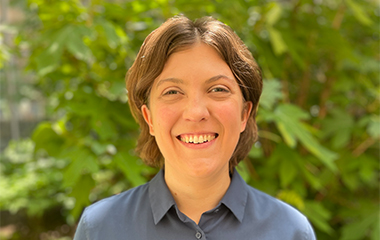
Disruptions in circadian rhythms during human development are a common co-morbidity in neurodevelopmental disorders. However, little is known about how circadian sleep patterns first emerge. I hypothesize that the emergence of rhythmic behaviors is intimately tied to metabolic state. I will use Drosophila melanogaster to investigate the link between circadian sleep pattern emergence and metabolic state. This will provide insight into how developing circuits integrate metabolic cues to drive the emergence of rhythmic behavior.
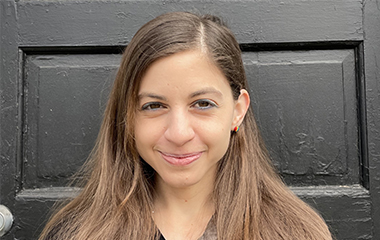
For new parents, poor sleep predicts perinatal mood and anxiety disorder (PMAD) risk. PMADs consequently influence parenting; however, the neural mechanisms linking sleep, PMADs, and parenting are unknown. Our project will estimate the sleep of birthing parents and their 5-6-month-olds using week-long actigraphy/report, then assess PMAD symptoms, parent brain function (fMRI), and parenting behavior/infant development. We hypothesize that sleep impacts both PMADs and parenting by altering socioemotional neurobiology, thus being a modifiable early intervention target.

High blood pressure during sleep is associated with an increased risk of cardiovascular disease. This project will collect feasibility data to determine whether unhealthy sleep behaviors are linked to higher blood pressure during sleep when measured within the home environment and if a sleep intervention can change blood pressure during sleep.
2024 Physician Scientist Training Grant Recipients
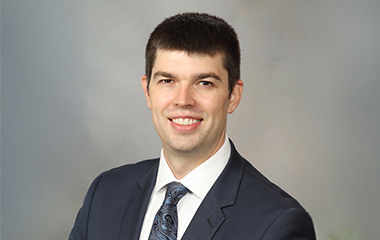
REM sleep behavior disorder (RBD) is strongly associated with alpha-synucleinopathy neurodegenerative disease. Few neuropathologic studies have been performed in RBD, and little is known about the effect of multiple pathologies in RBD. This project will aim to understand better the breadth of pathologies underlying RBD and the impact of underlying neuropathology on RBD neurophysiology and clinical progression.
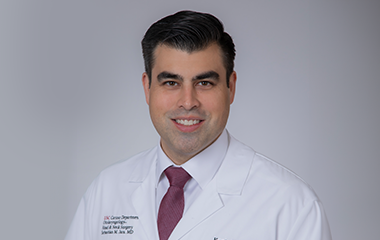
While we know that sleep apnea is a disorder of repeated upper airway obstruction during sleep, existing tools for evaluating upper airway behavior during sleep are limited. This project aims to test the feasibility of a new MRI system to evaluate the role of obesity on upper airway behavior. This study will help us better understand how excess weight affects sleep breathing and, thus, how weight loss may influence upper airway behavior.

Obstructive sleep apnea (OSA) is a highly prevalent condition with major cardiometabolic sequelae. Hypoglossal nerve stimulator (HGNS) is a surgically implanted device for OSA with long-term effectiveness and high therapy adherence. However, literature is lacking on the cardiometabolic outcomes of HGNS. Our randomized, within-subject crossover trial will examine the effects of HGNS on energy balance and insulin resistance. The results bear important implications for a patient population vulnerable to high cardiometabolic risk.

Sleep is vital for recovery, yet hospitals neglect sleep. This study addresses the challenge of measuring and mitigating sleep disruptions in hospitalized patients by proposing surrogate sleep metrics derived from electronic health record documentation. Methods include analyzing objective sleep data and assessing associations between EHR-derived sleep variables, around-the-clock order defaults, and clinical outcomes. Expected outcomes include an improved understanding of inpatient sleep and potential interventions to enhance sleep quality, benefiting patient outcomes and healthcare practices.
2024 Diversity Supplement Grant Recipients
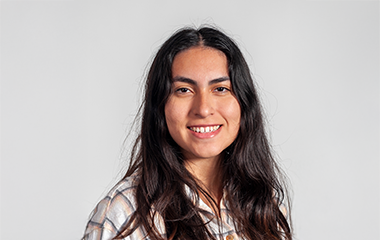
This project addresses the lack of culturally tailored preoperative insomnia interventions for older US Latino surgical patients. We will adapt the CBT-I Coach app for this population through focus groups, translations, and usability testing. Feasibility, acceptability, and efficacy will be evaluated in a pilot trial with 10 participants. We predict that the tailored intervention will reduce insomnia severity and improve postoperative outcomes.
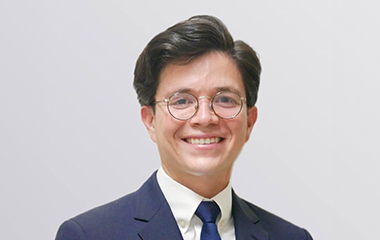
Forty-three point five percent of World Trade Center responders demonstrate symptoms of chronic rhinosinusitis (CRS). Responders with CRS symptoms report shorter sleep duration based on subjective measures impacted by reporting bias. To obtain objective measures, we use 2 weeks of actigraphy to determine sleep duration, its night-to-night variability, and sleep-wake timing regularity. We expect that WTC responders with CRS symptoms will have shorter and more variable sleep duration and decreased sleep-wake timing regularity.
2024 Focused Projects Grant for Junior Investigators Recipients
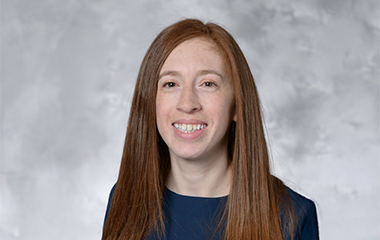
Evening sleep problems are prevalent in early childhood and increase the risk for poor behavioral and health outcomes. Informed by accumulating evidence of the early circadian system’s high sensitivity to evening light, this project will examine the feasibility, acceptability, and preliminary efficacy of evening light mitigation strategies to advance sleep and circadian timing in children, with the goal of improving early sleep health.
This grant was made possible by Madeleine Grigg-Damberger, MD.
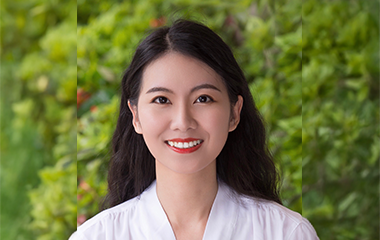
Sleep deficits are common in Parkinson’s Disease (PD), severely impacting patients’ health and quality of life. Previous research in PD mouse models has shown that reduced dopamine levels correlate with shorter, fragmented sleep, mirroring patient patterns. This project uses this mouse model to investigate how dopaminergic activity and downstream circuits affect sleep and whether targeted interventions can alleviate these deficits.
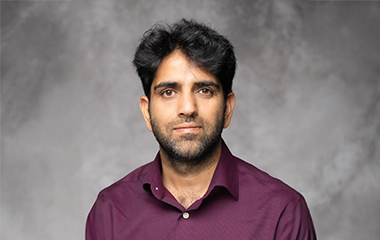
This project investigates the role of parabrachial pituitary adenylate cyclase-activating polypeptide (PACAP) neurons in regulating sleep-wake states. By using advanced techniques to monitor real-time neuronal activity and assess the effects of inhibiting PACAP cell bodies or terminals. The findings may uncover novel neural circuits and pathways critical for managing arousal and sleep, potentially leading to therapeutic strategies for hyperarousal disorders and improved sleep quality.
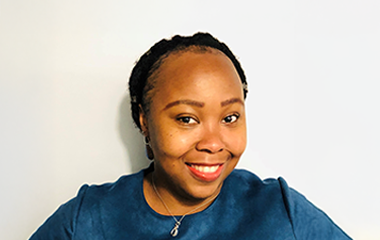
Cardiovascular disease risk is linked to short and long sleep duration, but the genetic factors driving this relationship in diverse populations remain unclear. This project will use whole-genome sequencing and a novel genome-pleiotropy pipeline to identify genetic variants associated with sleep duration and their connection to cardiovascular traits. By uncovering causal variants, we aim to identify therapeutic targets to improve outcomes.
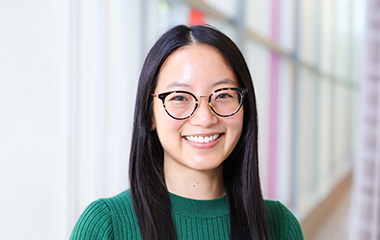
Positive airway pressure therapy is highly effective for treating obstructive sleep apnea but is limited by adherence rates of less than 50% in children. This project is a prospective cohort study to assess the impact of coexisting baseline insomnia on positive airway pressure therapy adherence. The results of this study will inform the design of targeted treatment plans for comorbid insomnia and sleep apnea in children.
This grant was made possible by Madeleine Grigg-Damberger, MD.
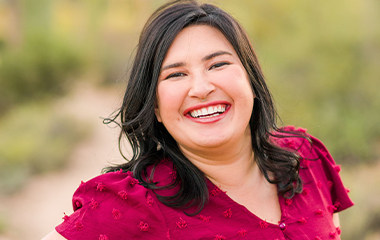
While self-report screening measures for sleep disorders are abundant in the literature, a reliable, diagnostic tool is necessary for confidence in clinical sleep research as well as accurate and efficient triage and treatment of patients with sleep challenges. The Structured Clinical Interview for Sleep Disorders (SCISD) was psychometrically validated in 2018 based on proposed DSM-5 criteria to meet this need. To maintain its utility, the SCISD-Revised (SCISD-R) was introduced to be consistent with the most up-to-date recommendations. The study aims to evaluate the psychometric properties of the SCISD-R using interviews collected from an ongoing study.
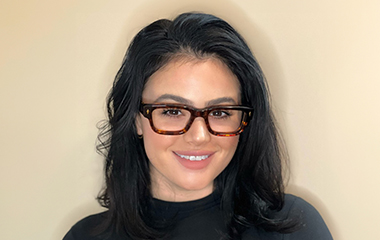
This project aims to explore the effect of a neuromodulation strategy, transcranial photobiomodulation (t-PBM), on sleepiness in obstructive sleep apnea (OSA) who are adherent to positive airway pressure (PAP) treatment, yet experience residual sleepiness. Using advanced magnetic resonance imaging techniques, we aim to elucidate the neural mechanisms of t-PBM and its ability to mitigate sleepiness in OSA. We expect that t-PBM will decrease sleepiness in OSA, related to increases in brain blood flow after treatment. The outcome of this project can suggest a novel technique to decrease sleepiness and increase brain blood flow, serving as a potential modulator of sleepiness in OSA. The AASM funding will serve as a critical opportunity to fund pilot data for utilizing t-PBM in OSA.
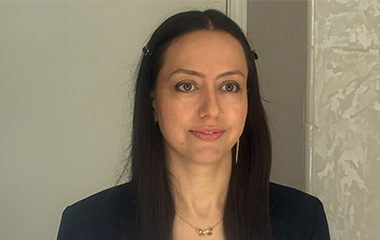
Cardiac and sympathetic activation is significantly greater when respiratory events are associated with leg movement (i.e., respiratory-related leg movement, RRLM). This project will address a critical gap in understanding the relationship between RRLMs and risk of cardiovascular disease (CVD) and mortality in obstructive sleep apnea (OSA). The overall objective of this proposal is to assess the relationship between an index of respiratory related leg movement (RRLMI) and adverse outcomes in patients with obstructive sleep apnea (OSA) with a focus on cardiovascular disease (CVD).
2024 Focused Projects Grant for Junior Investigators: Management and Treatment of Sleep Apnea Recipient
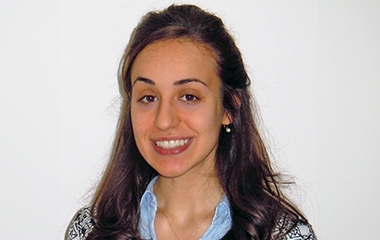
New obstructive sleep apnea (OSA) therapies are compared to existing treatments in terms of incremental cost vs. benefit, measured in quality-adjusted life years (QALYs). This study aims to develop a method to calculate QALYs using an OSA-specific quality of life questionnaire, via an indirect approach called mapping. We hypothesize that a disease-specific measure of quality of life is more sensitive compared to the current standard in health economic evaluations, which consists of using generic instruments.
This grant was made possible by ResMed
2024 Strategic Research Grant Recipients
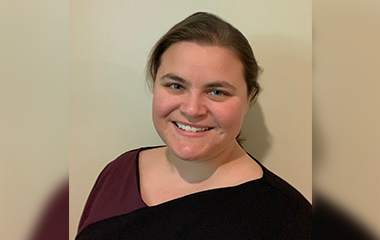
Idiopathic hypersomnia is clinically characterized by long nocturnal sleep, sleep inertia, excessive daytime sleepiness, and impaired daytime cognition. The underlying cause of IH is unknown, contributing to poor diagnostic sensitivity and specificity and limiting the development of targeted therapies. With an extended inpatient monitoring protocol, this project will measure circadian biomarkers and sleep to better define IH sleep physiology in relation to circadian waking signals.
This grant is co-funded by the AASM Foundation and Hypersomnia Foundation.
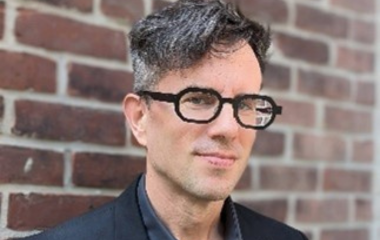
Using data from >7,000 clinical polysomnograms and >100,000 patients with obstructive sleep apnea (OSA) and controls, this project will quantify the need for and barriers to including endotypes in the sleep clinic by 1) identifying associations between endotypes and specific comorbidities, 2) determining whether endotypes predict PAP adherence in a large-scale study, and 3) obtaining structured feedback from clinicians to understand potential opportunities and barriers to integrating OSA endotypes as part of a clinical workup to treat OSA.
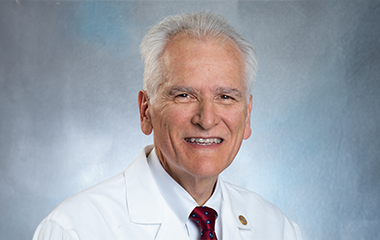
This project aims to explore vocal biomarkers for detecting sleep deficiency and sleepiness. Methods involve controlled trials of acute sleep deprivation and chronic sleep restriction, during which voice recordings will be collected. Machine learning models will analyze voice features for real-time detection of sleepiness. The expected outcome is the development of non-invasive, AI-driven tools that can be used in telemedicine for sleep disorder evaluation, benefiting both clinical populations and public safety settings.

Despite the importance of sleep to physical health, little is known about how sleep impacts preconception and early pregnancy. This project aims to investigate the relationship between sleep slow-wave activity derived from a noninvasive wearable device and female reproductive outcomes during in-vitro fertilization. The goal is to identify slow-wave activity as a potential target for early intervention to improve reproductive success.

Nightmares are a critical health concern among U.S. military Veterans, and the 2018 Position Paper for the Treatment of Nightmare Disorder in Adults: An American Academy of Sleep Medicine Position Paperrecommends cognitive behavioral therapy approaches for the treatment of nightmare disorder (CBT-N). To offer high-quality CBT-N through the Veterans Health Administration, evaluating the outcomes of a training initiative is an important first step. This project aims to evaluate the effects of training in CBT-N on clinicians’ competency and patients’ outcomes and to understand facilitators and barriers to use.
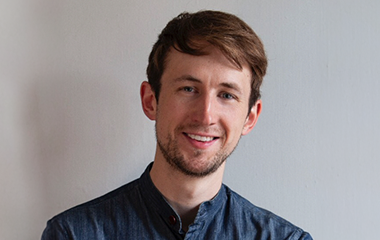
This multi-year observational sleep study combines machine learning-based infant sleep monitoring (autovideosomnography), national parent recruitment through Nanit’s sleep research platform, and advanced spatial data science to assess the sensitivity of infant sleep to changing ambient environmental conditions across the US and Canada. We expect this project to enhance the monitoring of emerging environmental stressors and associated sleep impacts in early human development and inform adaptive pediatric sleep interventions.
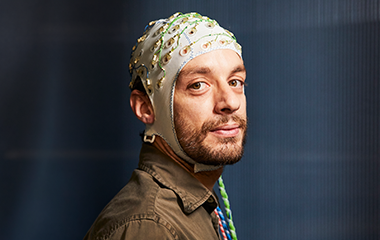
Sleep disturbances are prevalent in autism, and effective treatments are lacking. Sleep spindles exhibit infraslow rhythmicity, which is critical in sleep maintenance. This project will test whether 1) infraslow rhythms are impaired in autism and 2) they can be modulated to improve sleep. We will use wearable EEG devices to characterize infraslow rhythms and apply closed-loop auditory stimulation to enhance infraslow rhythmicity, increase sleep oscillations, and improve sleep quality.
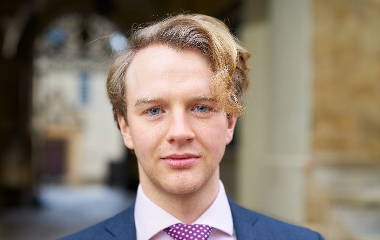
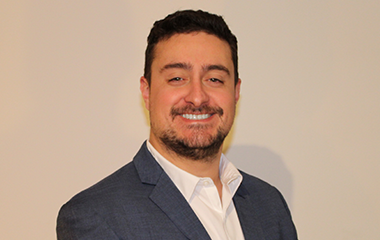
Few self-reported questionnaires used in narcolepsy are adequately validated, fit for purpose, or capture the broad impact narcolepsy has on daily life. This project will use the best-practice methodology in psychometrics and questionnaire design to create a “one-stop-shop” patient-reported outcome measure that will capture all domains considered meaningful to those living with narcolepsy, using their language and terminology. The questionnaire will be a validated means to assess the impact of narcolepsy and treatment efficacy.
This grant is co-funded by the AASM Foundation and Wake Up Narcolepsy.
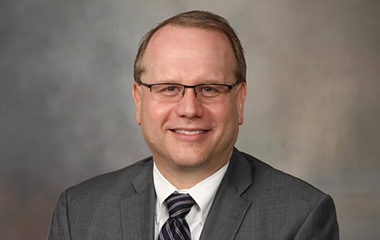
Validating home sleep testing measures for REM sleep without atonia will significantly advance widespread and cost-efficient diagnosis of rapid eye movement sleep behavior disorder (RBD), a common parasomnia disorder and public health problem involving injurious dream enactment and risk state for development of parkinsonism and dementia. This project will analyze the validity of an at-home sleep system for isolated RBD diagnosis, compared with gold-standard laboratory polysomnography, using well-validated REM sleep without atonia scoring approaches.
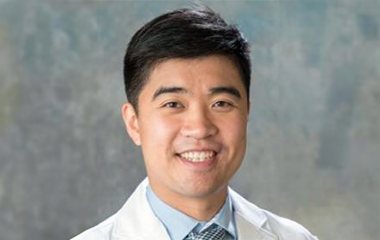
Hypersomnolence is a common complaint that is incompletely understood and difficult to evaluate with currently available methods. In this project, we aim to extract novel insights from awake EEG using machine learning tools. We hope to identify electrodiagnostic correlates of various dimensions of hypersomnolence and further our understanding of this important condition.
This grant is co-funded by the AASM Foundation and Hypersomnia Foundation.
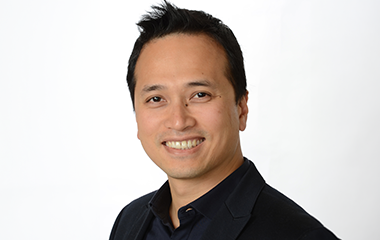
The brain mechanisms differentiating central disorders of hypersomnolence, including narcolepsy type 1 and type 2 and idiopathic hypersomnia, remain unclear. This project will perform a global brain imaging analysis combining existing magnetic resonance imaging datasets from 26 sites worldwide with more than a thousand subjects to identify the neurobiological processes underlying each central disorder of hypersomnolence. This project will allow us to identify reliable brain biomarkers that characterize each type of central disorder of hypersomnolence.
2024 SRS Foundation Small Research Grant Recipients

Sleep plays a vital role in memory consolidation, particularly during non-rapid-eye-movement sleep when neural traces supporting newly learned information are reactivated. This project will explore the innovative use of targeted memory reactivation by combining auditory and olfactory cues to enhance memory consolidation. Using the engaging virtual environment of Minecraft, participants will encode memories enriched with sounds and odors, which will later be reactivated during sleep. By examining the interactive effects of multisensory cues, this research aims to determine whether combining auditory and olfactory stimuli can synergistically improve memory retention compared to using a single modality. The findings can potentially uncover novel approaches to optimizing memory through sleep in real-world contexts.

Studying OSA remains challenging due to the need for nighttime evaluations and potentially disruptive equipment, limiting research progress. This project refines drug-induced sedated endoscopy (DISE) to understand OSA pathophysiology better. The enhanced DISE protocol visualizes airway collapse and determines critical pressures for airway closure and opening by integrating airflow measurements and CPAP titration. It also examines inspiratory duty cycle compensation, a potential phenotypic trait linked to individual disease severity. This innovative approach provides a standardized framework for studying OSA, offering valuable insights into airway mechanics and physiological responses to advance diagnostics and personalized treatments for this widespread and serious condition.
2024 Sleep Champion Award Recipient
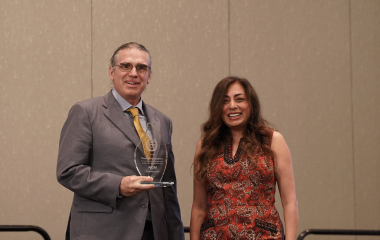
2024-2025 SOAR Fellows

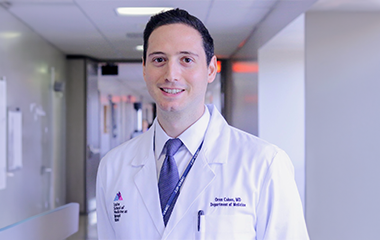
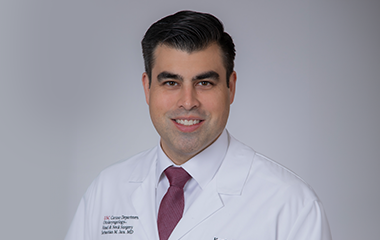

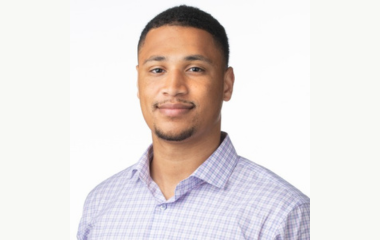
2024 AMA Foundation Physicians of Tomorrow Scholarship Recipients
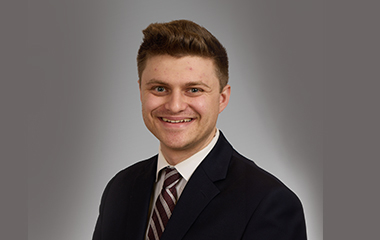
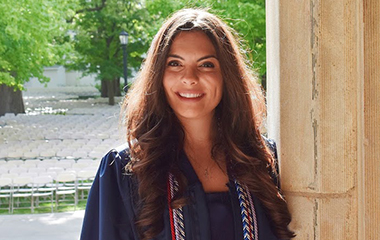
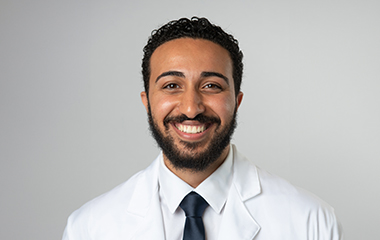
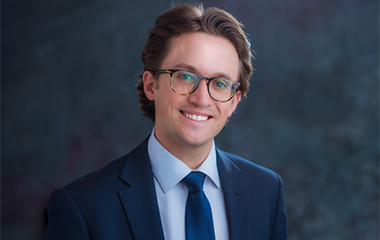
2024 Community Sleep Health & Public Awareness Grant Recipients

The goals of this research include how to better support the prioritization of healthy sleep by teachers, parents, and adolescents. This study will help develop innovative preventative non-pharmacological intervention methods to improve youth sleep health.

This project aims to increase public awareness of the importance of sleep health and assist individuals with sleep issues in finding effective treatments. We will trial an innovative online tool designed to screen for common sleep disorders in the community and provide personalized guidance and treatment recommendations.

The goals of the project are as follows: to enhance community health workers’ (CHWs) knowledge and experience in sleep health and sleep medicine; to increase awareness about sleep health, sleep hygiene practices, and available options for addressing sleep disorders among the populations served by CHWs; and to gain valuable insights for improving and expanding the training program in the future.

The goal of this project is to better understand the impact of a social media campaign aimed at Black individuals on improving sleep health. This digital campaign will include a website, social media advertisements, and key messages delivered by influencers through social media. It has the potential to reach over 100,000 individuals, with expected views, clicks, and impressions exceeding one million. Funding from the AASM Foundation will support my career in designing culturally tailored interventions.
2024 RLS Foundation Research Grant Recipient
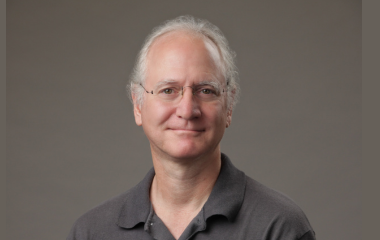
This study aims to use electrophysiological and genetic approaches in mice to study whether an iron-deficient diet leads to; (1) increased excitability in select ‘pain-like’ peripheral sensory signals arising in calf muscles, (2) whose activation of central circuits is abnormally amplified due to deficient capacity for dopamine-sensitive inhibitory gating signals in the spinal cord. As an individual with RLS, I fully appreciate the suffering associated with abnormal limb sensations and the immediate relief provided by leg movements.

